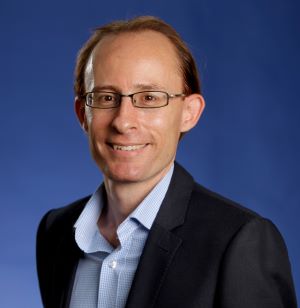Mr. Ben Saul
Special Rapporteur on counter-terrorism and human rights
Ben Saul (Australia), the Special Rapporteur on the promotion and protection of human rights and fundamental freedoms while countering terrorism, took up his functions on 1 November 2023. He is Challis Chair of International Law at the University of Sydney and the United Nations Special Rapporteur on Human Rights and Counter-terrorism. He has expertise in public international law, particularly counter-terrorism law, human rights and refugee law, the law on the use of force, international humanitarian law, international criminal law, and United Nations law. He has published 20 books and hundreds of scholarly and other articles and been awarded numerous research grants (including an Australian Research Council Future Fellowship). His research has been used in international and national courts and he has been involved in over 150 public inquiries. His book Defining Terrorism in International Law (Oxford, 2006) is the leading work on the topic, and he is first author of the Oxford Commentary on the International Covenant on Economic, Social and Cultural Rights (2014), awarded a Certificate of Merit by the American Society of International Law. Recent collaborative books include Public International Law (2023), The Oxford Handbook on International Law in Asia and the Pacific (2020), and The Oxford Guide to International Humanitarian Law (2020).
Mr. Saul has taught law at Oxford, Harvard, the Hague and Xiamen Academies of International Law, and in China, India, Nepal, Cambodia, and Italy. He has given lectures at Cambridge, New York University, London School of Economics, and for the UN Audio Visual Library of International Law and the Harvard Humanitarian Program. He has been an academic visitor at the Max Planck Institute for International Law (Germany), and the Raoul Wallenberg Institute for Human Rights (Sweden) and has undertaken professional missions or fieldwork in over 35 countries. He is a former Associate Fellow of Chatham House (the Royal Institute of International Affairs) in London and the International Centre for Counter-Terrorism in The Hague.
Mr. Saul has been involved in cases in international, regional and national courts, including the International Criminal Tribunal for the former Yugoslavia, the Special Tribunal for Lebanon, the Inter-American Court of Human Rights, and the European Court of Human Rights. He was lead counsel in five successful national security before the UN Human Rights Committee, including FJ (2016), FKAG (2013) and MMM (2013) (involving the illegal indefinite detention and inhuman treatment of 51 refugees); Hicks (2016) (unfair military trial at Guantanamo Bay) and Leghaei (2015) (secret security expulsion). Mr. Saul has advised or consulted to United Nations and other international bodies (including UNODC, UNHCR, UNESCO, OHCHR, ICRC, and UNOCT), governments, militaries, judiciaries, and NGOs (including Amnesty International, Médecins Sans Frontières and the International Commission of Jurists) and delivered technical assistance in developing countries. He co-drafted the UN Model Legislative Provisions on Victims of Terrorism (UNODC/UNOCT/IPU) and the professional training curriculum on terrorism and international law (UNODC).
Mr. Saul has served on various professional bodies, including the International Law Association’s Committee for the Compensation of Victims of War, the Law Council of Australia’s National Human Rights Committee, and NSW Legal Aid’s Human Rights Committee. He is a former President of Australia’s Refugee Advice and Casework Service and Vice-President of Sydney PEN. Previously he was Director of the Sydney Centre for International Law and Editor in Chief of the Australian International Law Journal. He serves on editorial boards in Indonesia, Nepal, and the Netherlands. He currently serves on the advisory board of the Australian Centre for International Justice. He formerly worked as a Legal Officer at the Australian Law Reform Commission. Mr. Saul frequently appears in the international media, including writing opinions in The New York Times. He has a doctorate in international law from Oxford and honours degrees in Arts and Law from the University of Sydney.
